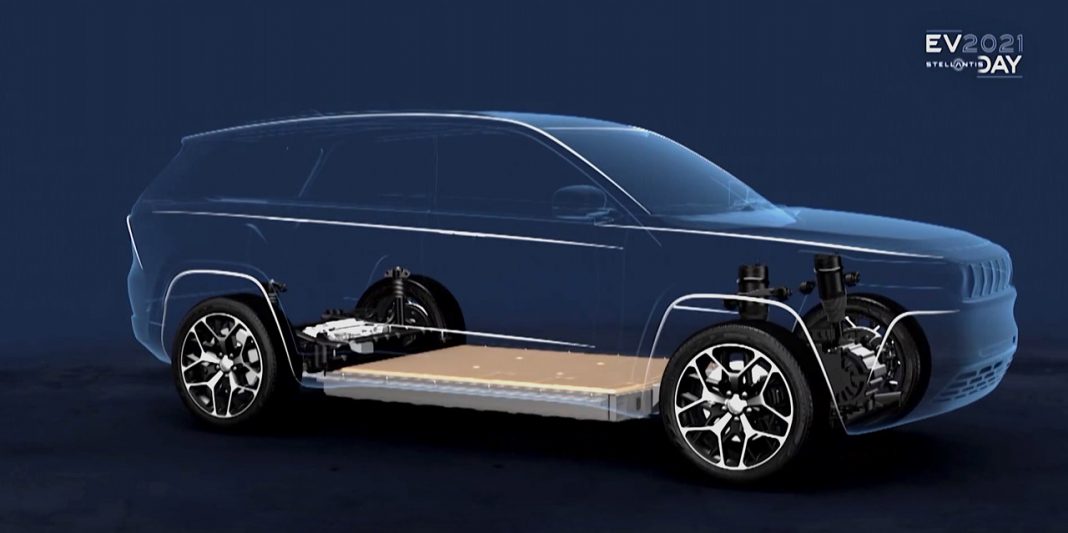Stellantis NV CEO Carlos Tavares isn’t exactly thrilled about the pressure to convert the industry for higher EV adoption. Transitioning too quickly to electrification could hurt thousands employed by the auto industry. As well, development could outpace the effort to make EVs affordable, forcing tough decisions about passing on costs versus restructuring companies to absorb them.
Tavares spoke at the Reuters Next virtual conference on December 1. He spoke pointedly about regulators, encouraging them to pursue development related to charging infrastructure and energy needs rather than getting involved in how the automotive industry moves forward. He said, “My recommendation to those who are making regulations and advocating XYZ is to take care of the energy industry, and now let the automotive industry take care of its own job, which is to bring clean, affordable and safe mobility to our customers.”
| Related: Nearly one-third of car shoppers are checking out EVs |
Higher productivity key for Stellantis
In order for Stellantis to meet EV goals, Tavares believes productivity will need to increase substantially over the next five years, from the current rate of 2% to 3% all the way to 10%. That productivity rate is almost unheard of for automotive and achieving that rate would be monumental. However, the alternative could be catastrophic – vulnerability in the event of a major concern in the world market. Tavares said, “Over the last few years, we have learned how to deal with volatility. We know that this is a very chaotic world and very volatile, very unpredictable things which actually happen, and what we have learned from this is that the most important thing for us is to keep a very low break-even point for our business model to make sure that we can digest and accommodate to those unpredictable things.”
Industry moving at breakneck speed
 The auto industry is foreseen to sell 40% to 50% of all new vehicles as EVs by 2030, and by 2035, most carmakers have committed to abolishing internal combustion engines in new cars. That’s a torrid pace considering the small movements made in CAFÉ standards over the past few decades. For more than a century, combustion engines have been the go-to power source for anything motorized that carries passengers or otherwise.
The auto industry is foreseen to sell 40% to 50% of all new vehicles as EVs by 2030, and by 2035, most carmakers have committed to abolishing internal combustion engines in new cars. That’s a torrid pace considering the small movements made in CAFÉ standards over the past few decades. For more than a century, combustion engines have been the go-to power source for anything motorized that carries passengers or otherwise.
Tavares thinks that the transition pace is moving too fast, an almost unsustainable pace. “Right now, what has been requested to the automotive industry is putting the automotive industry not only on high-speed mode but possibly on the highest possible high-speed mode. If somebody would like to enhance even more the speed, they can, it’s just going to be counterproductive.”
Along with the speed that EVs are being built and introduced by carmakers, the mounting costs could mean that some manufacturers aren’t able to compete. Every investment is measured in the billions of dollars. Stellantis is positioned well in the EV transition due to efficiencies created in the merger between FCA and PSA – at least, they’re positioned better than many other carmakers.
“Not all the carmakers will make it. There will be some people that will face big difficulties, but I consider that our company at Stellantis with $5 billion in synergies, we have a better starting position than most of our competitors.”
Stellantis invests in solid-state batteries
The day before Tavares spoke at the Reuters NEXT conference, Stellantis announced an investment into a solid-state battery developer based in Massachusetts. Factorial Energy is working on battery technology that can produce longer-range batteries that are safer to use. The battery maker claims their products will be on par cost-wise with lithium-ion batteries used by most other carmakers.
Stellantis’ investment amount was not disclosed in the deal.
Did you enjoy this article from Jason Unrau? Read other articles on CBT News here. Please share your thoughts, comments, or questions regarding this topic by submitting a letter to the editor here, or connect with us at newsroom@cbtnews.com.
Be sure to follow us on Facebook and Twitter to stay up to date or catch-up on all of our podcasts on demand.
While you’re here, don’t forget to subscribe to our email newsletter for all the latest auto industry news from CBT News.










